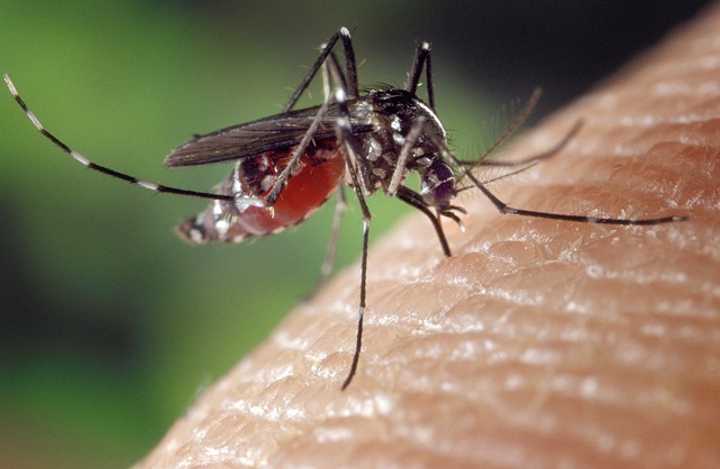The Ulster County resident died from complications stemming from eastern equine encephalitis (EEE), Gov. Kathy Hochul’s office confirmed on Monday, Sept. 23.
It marks the first human case of EEE in New York State since 2015.
“We’ve been informed this patient has passed away from EEE, we extend our sympathies and our hearts go out to their family,” Hochul said.
The case, which was confirmed by the State Health Department’s Wadsworth Center on Friday, Sept. 20, is being investigated by the Ulster County Department of Health.
Eastern equine encephalitis is “a serious and fatal” disease with no vaccine, State Health Commissioner Dr. James McDonald said. It is spread by infected mosquitoes that can affect both people and horses.
While most people bitten by an infected mosquito will not develop symptoms, severe cases may begin with the sudden onset of headache, high fever, chills, and vomiting.
The illness can then progress into disorientation, seizures, encephalitis (inflammation of the brain), and coma. Approximately one-third of patients who develop EEE die, according to the Department of Health. Many patients who survive experience neurologic impairment.
Mosquitoes infected with EEE are typically seen in two or three counties each year, but this year infected mosquitoes have been found in 15 counties scattered across New York.
“Mosquitoes, once a nuisance, are now a threat,” McDonald said. “I urge all New Yorkers to prevent mosquito bites by using insect repellents, wearing long-sleeved clothing and removing free-standing water near their homes.”
McDonald issued a declaration of an “imminent threat to public health” for EEE, freeing up state resources to support prevention measures by local state health departments.
Multiple state agencies – including the departments of health and environmental conservation, and the Parks Department – are taking part in a coordinated response that includes expanding access to insect repellant at state parks and campgrounds, Hochul’s office said.
Authorities have begun placing signage about EEE at state parks and historic sites in affected areas, and limiting park hours during dawn and dusk, hours when mosquitoes are most active.
“Fall is officially here, but mosquitoes will be around until we see multiple nights of below freezing temperatures,” McDonald said.
EEE has also been confirmed in several other states this year, including New Jersey, Massachusetts, Vermont, and Rhode Island.
In August, officials confirmed that a 41-year-old man from Hempstead, New Hampshire, died after contracting EEE. He had been hospitalized with the illness.
It marked the first human case of EEE in New Hampshire since 2014.
As there is no commercially available human vaccine for the disease, health officials said the best protection is preventing mosquito bites. They recommended the following precautions:
- Consider wearing long sleeves and tucking pants into socks and shirts into pants when outdoors at dusk or dawn, the time of day when mosquitoes are most active.
- Use insect repellents containing DEET. More information on repellents can be found here. Be sure to follow the insect repellent label directions. Children should not handle repellents directly. Instead, adults should apply repellents to their hands first and then gently spread them on the child's exposed skin. Avoid applying directly to children's hands. After returning indoors, wash your child's treated skin and clothing with soap and water or bathe the child.
- Make sure there are screens in the windows and doors of the home. Make sure the screens are free of rips, tears and holes.
- Eliminate all standing water in yards and around the home and property where mosquitoes can breed, including plastic containers, pool covers, wading pools, ceramic pots, clogged drainpipes and wheelbarrows. Also, change water in bird baths twice a week.
You can find more information on eastern equine encephalitis on the New York State Department of Health website.
Click here to follow Daily Voice Kingston and receive free news updates.
